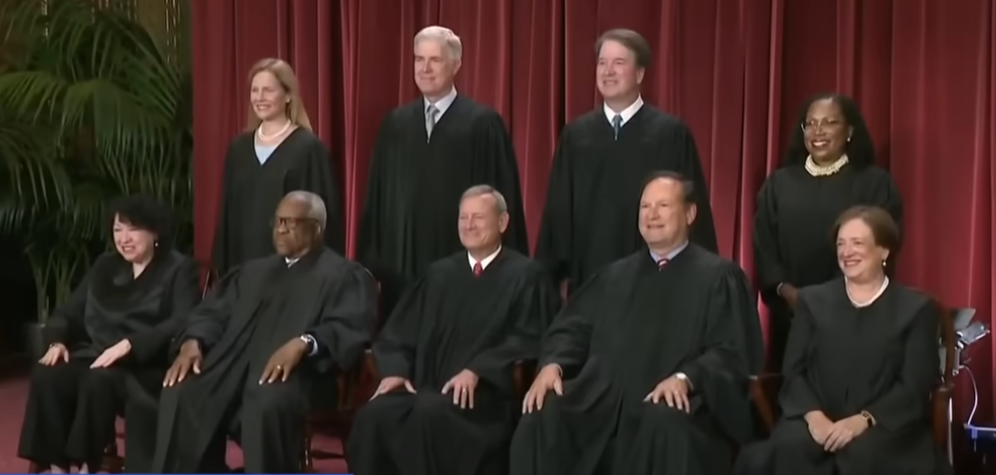In a major development for immigration enforcement and executive authority, the Supreme Court delivered a decisive 5-4 ruling in favor of President Trump’s administration, allowing immediate deportations of Venezuelan nationals under the rarely-invoked Alien Enemies Act of 1798. This pivotal decision marks a significant restoration of constitutional balance, pushing back against a growing trend of judicial overreach by lower court judges.
Historical Context and National Security
The Alien Enemies Act grants the President substantial power during times of conflict to detain and deport citizens of hostile nations. Historically used during the War of 1812, World War I, and World War II, Trump’s invocation of this law specifically targets alleged members of the dangerous Venezuelan gang, Tren de Aragua. Administration officials have argued convincingly that these deportations are crucial to protecting American communities from violent criminal threats and terrorism.
Judicial Obstruction and Legal Challenges
However, the path to this Supreme Court decision was littered with judicial obstructions. Initially, U.S. District Judge James Boasberg temporarily halted deportations, citing concerns that hundreds of Venezuelans had been swiftly removed without due process. Boasberg went so far as to suggest holding Trump administration officials in contempt for defying his order, creating a contentious legal standoff. His actions prompted widespread conservative criticism of judicial overreach and politically motivated rulings.
Marc Thiessen, a columnist for “The Washington Post,” accurately described this obstruction as part of a broader strategy, labeling it the “new lawfare.” Thiessen pointed out that previous efforts to derail Trump through impeachments and indictments had largely failed, forcing opponents to rely on court injunctions and activist judges to halt his policies. This Supreme Court ruling represents a critical victory in combating this dangerous tactic.
Supreme Court’s Narrow Decision
Justice Amy Coney Barrett notably broke ranks from her conservative colleagues, siding with the liberal justices and underscoring the razor-thin margin protecting constitutional executive powers from judicial overreach. This narrow decision highlights ongoing ideological battles within the Supreme Court itself.
Reactions from the Administration
Homeland Security Secretary Kristi Noem welcomed the ruling enthusiastically, emphasizing national security: “Today’s a bad day to be a terrorist in the United States of America.” Attorney General Pam Bondi called it a “landmark decision,” criticizing lower courts for attempting to undermine the President’s ability to safeguard the nation. Vice President J.D. Vance echoed these sentiments, stating this ruling was a clear “win for the American people.”
Jurisdictional Clarity and Future Implications
The case also underscored procedural and jurisdictional issues, as the Supreme Court mandated future legal challenges against deportations must occur in Texas, where detainees are held, rather than Washington, D.C. This sensible move will reduce the ability of activist judges in politically favorable jurisdictions to impose nationwide injunctions, a persistent concern for conservatives.
Ongoing Legal Battles
Despite this victory, legal battles are expected to continue. Judge Boasberg is still considering contempt charges against administration officials. Justice Sonia Sotomayor, representing the dissenting opinion, expressed deep concerns about potential due process implications. Liberals continue to argue the Alien Enemies Act’s use in the absence of a formally declared war with Venezuela is questionable.
Reinforcing Executive Authority
This ruling firmly establishes that executive authority on critical national security issues, such as immigration enforcement and deportation of dangerous individuals, should not be undermined by district court judges operating beyond their jurisdictional boundaries. It sends a powerful message reinforcing the rule of law against political attempts to manipulate the judicial system.
The Supreme Court’s intervention was timely and essential. It reaffirmed that activist judges cannot be allowed to jeopardize America’s security or constitutional order through political injunctions.
How do you feel about this decision? Do you think this will finally put an end to judicial activism on immigration policies?
WE’D LOVE TO HEAR YOUR THOUGHTS! PLEASE COMMENT BELOW.
JIMMY
Find more articles like this at steadfastandloyal.com.
h/t: Steadfast and Loyal


Leave a Comment